Articles

Leisure: car-free mobility
Leisure activities that do not involve the use of cars are now "in", as the increasing number of information packs clearly shows. The Alpine Club South Tyrol (AVS) for instance recently published five new brochures, each featuring 15 to 20 hiking routes whose starting and finishing points can all be reached by public transport. In the series Hiking Without Cars the Alpine Club has compiled a total of some 300 hiking tips for the whole of South Tyrol. As the AVS remarks in a press release, "It should be a priority for tourist regions to adopt measures that promote the use of public transport for travel both to and from destinations as well as for activities at the holiday destination itself".

The "brain drain": an opportunity for the Alps?
Highly qualified people are also leaving alpine regions to move to other regions or countries. But according to a study by the Arbeitsgemeinschaft Alpenländer (ARGE ALPE) Working Group the Alps can put this brain drain to a positive use. Indeed these brilliant minds are also multipliers and image carriers for their homeland around the globe, a fact that should be capitalised on.
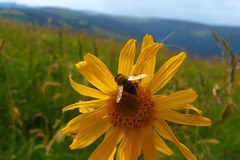
International projects on the impact of climate change in mountain regions
The results of the CIRCLE MOUNTAIN Call are now available. The financing of four translational projects has been approved. The projects are to run for a period of two years and have a volume of approximatively EUR 300'000 each. The four funded projects are ARNICA, EURAS-CLIMPACT, ChangingRISKS and CAMELEON.
Dear colleagues,
One of the main challenges in the process of implementing the Alpine ecological network is involving all the relevant stakeholders. The Ecological Continuum Initiative supports this goal in different ways. On the one hand with printed information material (fact sheets and the brochure), on the other hand by organizing meetings that offer a chance for personal interactions and exchange among stakeholders. Such a workshop on stakeholder integration took place in Dobbiaco/I this April.
News from TransEcoNet - transnational ecological networks in Central Europe
Similar as ECONNECT, the Platform Ecological Network and the Ecological Continuum Initiative in the Alps, in Central Europe the TransEcoNet project strives for a better connection of protected and less or unprotected landscapes across national borders. One major goal of the project is to reveal local people's perception and relation to their surrounding landscape in form of a survey of oral history. This is being carried out in the form of interviews in selected project regions.
5th meeting of the Ecological Network Platform
The 5th official meeting of the Ecological Network Platform of the Alpine Convention was held in Dobbiaco/Toblach (I) on 21 April 2010. The main topic at the meeting was progress made to date in nominating a number of pioneering Alpine regions as Pilot Regions of the Alpine Convention. It is hoped that the first regions will receive official recognition at the next Alpine Conference to be held in March 2011.
Think tank workshop Dobbiaco/Toblach: Elaborating recommendations for stakeholder integration
Local connectivity projects can only be implemented if stakeholders are integrated into these activities. Potential difficulties and supportive tools were in the centre of an exchange of experiences between representatives of the ECONNECT pilot areas and other stakeholders carrying out connectivity activities. The discussions were facilitated by the Ecological Continuum Initiative in the frame of a workshop.
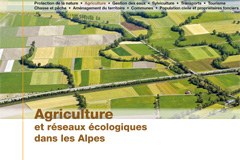
Communicating ecological connectivity to stakeholders made easy
What significance do water management, tourism and agriculture have for ecological networks? Can measures in the transport sector have a positive effect for ecological corridors? How shall I design my garden to be a habitat for domestic plants and animals? These questions are answered by a series of eleven fact sheets provided by the Ecological Continuum Initiative.

CIPRA goes facebook
CIPRA has now joined the popular platform facebook with a profile of its own. At www.facebook.com/CIPRA.org facebook users can network with our organization and will be informed about novelties, events and actions. Videos and photos provide additional interest and visualize our motto "Life in the Alps".
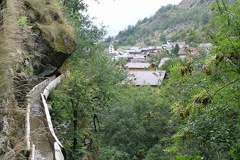
Swiss research into sustainable water use
Melting glaciers create new lakes in the Alps. This creates new tourism potential and new risks, such as floods and landslides, for the inhabitants of the valleys. Where and when are such lakes created? Who owns them and who is responsible for them?

What do the Julian Alps/Sl and the mountain La Salève/F have in common?
Both are examples of protected areas in the alpine bio-geographical region and are presented in the new publication of the European Commission "Natura 2000 - Protection of Biodiversity in Europe". A double page spread shows readers which animal and plant species are particularly in need of protection, how the areas are protected and what their condition in terms of preservation is.
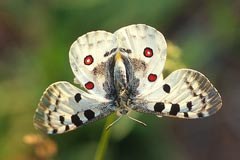
New on-line portal for biodiversity in mountain areas
Recently, an on-line portal has been set up where those who are interested can find information on the many animal and plant species in mountain areas on an interactive digital map.
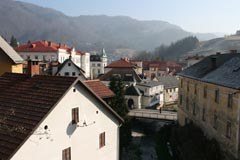
Where unemployment is now unheard of: Idrija/Sl, the "Alpine Town of the Year"
In April the Slovenian town of Idrija has been declared "Alpine Town of the Year". In the Year of the Alpine Town Idrija intends to make a big step towards becoming a model town for climate protection. In the context of sustainable development, the "Alpine Town of the Year" brand should help the town to become known outside Slovenia as well.
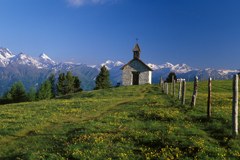
National parks in the mountains and the simulation of local participatory processes
This year's first issue of the "Revue de géographie alpine" / "Journal of alpine research" presents research on protected mountain areas and the participatory processes in those areas. The five essays discuss questions such as: Do trends and political guidelines contribute to the identification of compromises and consensus, and to the rectification of previous follies in environmental policy?
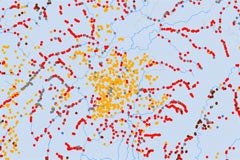
Obstacles and facilitations for the movement of fishes
An inventory of all the artificial barriers that impede the flow of rivers has found out that French rivers are interrupted by 60,000 dams, weirs, locks, mills etc. The inventory has been recently published as a online map where the works are shown divided by department, municipality or watercourse. All these works obstruct the movement of migratory aquatic organisms and the transport of sediments, thereby affecting ecosystems.
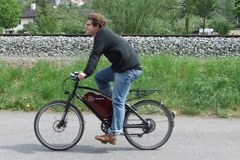
New platform for tourism by electrobike
In mid-April, the ExtraEnergy association started the web site "Tourism and Electric Bikes". An interactive map provides information about various tour packages for electrobikers. The web site additionally provides useful information for holiday planning.

Kick-off for a new alpine media house
The "Las-Alps Infoteca" project was launched at the end of April in Chur/CH. In the coming five years, a competence centre will be established for media products that are relevant to the Alps. The project will be realized in two phases: in the first phase the focus will be on the provision of media products, in the second the centre will also produce and market its own products.
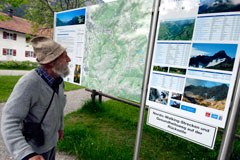
New web page with information on visitor centres throughout the Alps
A new page has recently been added to the web site of alparc - the network of protected areas in the Alps - for those who want an overview of the many visitor centres in the Alps.
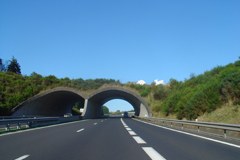
Linking-up the German roads for animals and for a better traffic safety
The German Government is developing a National Connectivity Programme which foresees to build wild animal crossings at the most important sites of migrating corridors. This year the first systematic research on ecological corridors in Germany has been finished, representing an important scientific groundwork for the implementation of the Programme.
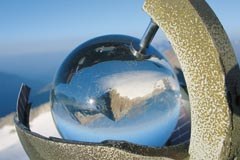
Towards happy shrinking
Always more - the world will become better and better as long as material well-being grows. Nobody asks what this costs…until the system collapses. The present financial and economic crisis is giving us a taste of it. The Alps are now among the losers, but could be among the winners if they rise to the challenge. Must growth in principle be rejected?
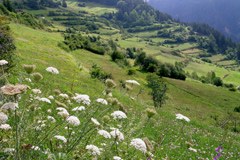
Fire for the flowering meadows
In 2010, the "Fire in the Alps" campaign once more draws our attention to a burning issue with its signal fires during the second week of August. This year, the imposing fires on the heights will burn "for the protection of the alpine flowers", as a contribution to the Year of Biodiversity 2010.

Uphill with solar energy
The village of Tenna in the Safien valley of the Swiss canton Graubünden is working hard on a world premiere. The Skilift Tenna cooperative has decided to replace an ancient ski lift by the first solar-powered ski lift ever.
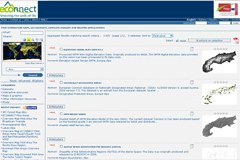
Maps and data on ECONNECT available online
The "GeoPortal" which is the central project repository for all spatial data and map products of ECONNECT is now online on http://gis.eurac.edu. Furthermore, the working group "Implementation strategy and data needs" has met to discuss the data situation at the current stage of the project.
Sharing connectivity knowledge within and beyond the Alps and visualising corridors and fragmentation
100 persons from eight European countries followed the invitation to the workshop in Grenoble, France, in November and used this opportunity for active knowledge transfer on ecological networks. The workshop discussions have helped the ECONNECT partners to agree on the appropriate methods which they are now using for modelling habitats and corridors for the whole Alps and for visualizing barriers.
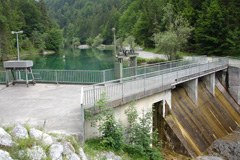
Alpine riverine landscapes: connectivity, barriers and fragmentation
How strongly is a river landscape fragmented? What are the most important barriers and obstacles in Alpine rivers? These questions are in the focus of the Institute of Ecology from University of Innsbruck within its ECONNECT activities. The results will be visualized with the help of GIS and contacts to regional watershed authorities established for the reduction of barrier impacts and restoration.

Ecological Connectivity and the Law: from barriers to instruments
Entering the second year of the ECONNECT project, the activities on legal barriers (Work Package 6) are steadily progressing. The two major fields of action are at the moment a comparative analysis of the legal frameworks of ecological connectivity in the Alps and the analysis of the legal situation in the pilot regions.
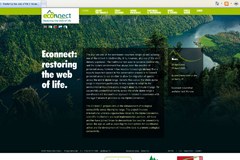
Understandable and visualised ECONNECT website
The ECONNECT website www.econnectproject.eu has recently been translated into the four project languages (French, German, Italian and Slovenian) and will soon be updated with maps.
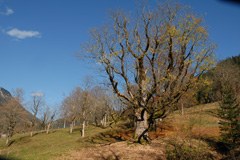
Berchtesgaden - Salzburg: Improving the ecological network of extensive grasslands
Extensively cultivated grasslands are important landscape elements for ecological connectivity in the pilot region Berchtesgaden - Salzburg. Improving these habitats will help to safeguard species such as butterflies, dragonflies or grasshoppers. This is one of the tasks of the subprojects within ECONNECT which are currently being finalised.
Rhaetian Triangle: new online tools and support for local initiatives
The Swiss National Park (SNP) is currently developing a web based tool to analyze barriers and corridors of the large pilot region Rhaetian Triangle. Furthermore, two local initiatives are concretely acting for the restoration of ecological connectivity. The new map application will allow comparing a freely defined area with other areas in the neighbourhood and identifying the fields with high need of action according to selected indices.
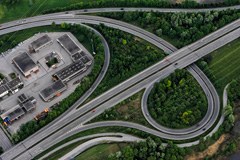
Alpi Marittime: Ecological corridors preventing car accidents
In the Italian Alpi Marittime Natural Park car crashes which involve ungulates are very common. In most cases those accidents, besides being hazardous for drivers' life, could have been avoided with a better territorial planning, a more careful infrastructure planning and a warier use of existing technologies. The Alpi Marittime natural park will make use of the new ways to help the passage for animals across busy roads, which have been tested in the Pilot region of Isère.